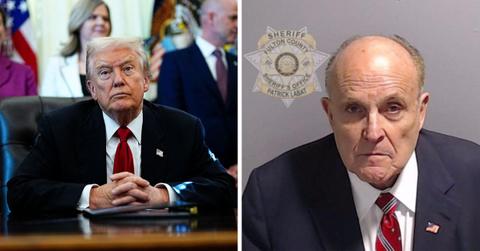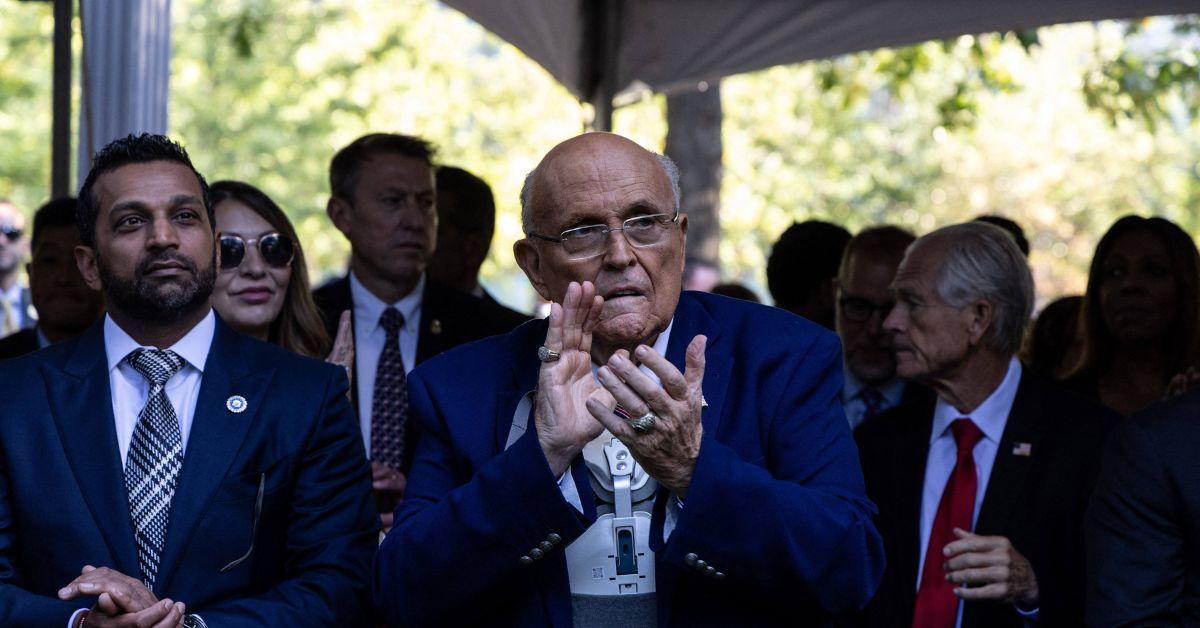Rudy Giuliani’s Disbarment and Trump’s Pardon Have People Questioning What’s Really Going On
Once celebrated as “America’s Mayor,” Rudy Giuliani now finds his legacy rewritten. Was justice served ... or silenced?
Updated Nov. 10 2025, 11:14 a.m. ET

He cleaned up New York, led the city through 9/11, and later stood beside Donald Trump during one of America’s most turbulent elections. Few figures have fallen as far or as publicly as Rudy Giuliani.
His 2024 disbarment was meant to close the book on his career, but it did the opposite. Instead, it opened a larger conversation about politics, power, and the limits of truth. So, what really happened to Rudy Giuliani, and why did President Donald Trump decide to pardon him?

Why was Rudy Giuliani disbarred?
According to the Associated Press, Rudy was disbarred in Washington, D.C. in 2024, after a court ruled that he made false and misleading statements while challenging the 2020 election results. The panel argued that his actions “undermined public trust” and violated the ethical responsibilities of an attorney. He had already been disbarred in New York prior to this ruling.
The disbarment effectively ended a decades-long career that once defined legal and political strength in New York City.
Supporters, however, believe the punishment was political. They point out that many attorneys have made public missteps or exaggerated claims without losing their licenses. To them, Rudy’s downfall reflects a justice system willing to punish dissent while ignoring deeper inconsistencies in how the 2020 election was handled.
Even Newsweek reported that the FBI identified possible foreign interference in the election months before it happened, and then intelligence that was quietly recalled for reasons that remain unclear. That detail alone leaves some wondering whether Rudy was disbarred for being wrong, or for refusing to play along.
Why did President Donald Trump pardon Rudy?
According to NBC News, in November 2025, President Donald Trump pardoned Rudy, along with 76 other people. The pardon cleared Rudy of any remaining legal exposure related to election investigations or alleged misconduct tied to his post-election work. It exonerates "all" citizens accused of election interference.
Technically, a presidential pardon cannot reverse disbarment since that’s handled by the courts, not federal prosecutors. Still, the move carried symbolic weight. To supporters, it was vindication and proof that Rudy was targeted for his loyalty and his unwillingness to accept a one-sided narrative. To critics, it looked like political payback dressed as mercy.
Because none of the people named in the pardon order were convicted of federal crimes, the action didn’t erase (nonexistent) legal penalties so much as it reframed the story. It drew a clear line between President Donald Trump and his opponents, reigniting debate over whether political loyalty should ever intersect with justice.
For Rudy, the pardon will likely reshape how the public will remember him: as either a wronged ally or a man saved by power.
Rudy’s fall from hero to headline shows how politics and justice have become nearly inseparable. His disbarment may never be reversed, but the pardon ensures his story won’t fade quietly. Whether you see him as reckless or wronged, one truth remains: in today’s America, the battle for truth is often fought in courtrooms and behind closed doors, so the people rarely get the full story.